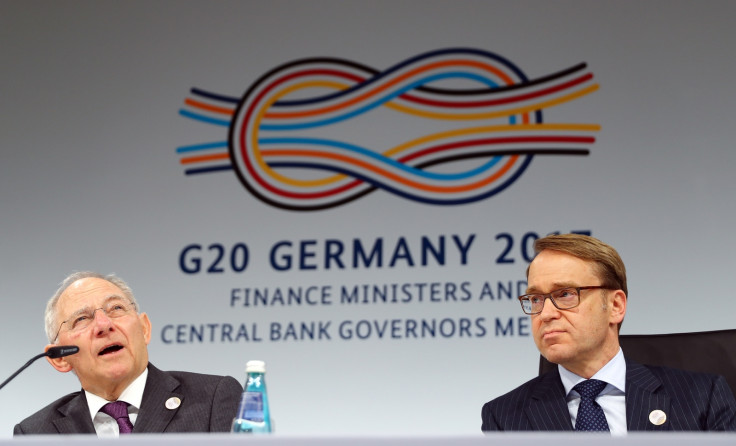As Britain plans Brexit, Germany and France plot to strengthen eurozone
"We see in Brexit an opportunity for our financial companies to be more attractive than they were before," says Bruno Le Maire.

Germany and France pledged Monday (22 May) to seek ways to strengthen the 19-nation eurozone, with harmonizing corporate taxes among the possible measures they will mull over in the coming weeks.
German Finance Minister Wolfgang Schaeuble and new French counterpart Bruno Le Maire said they are setting up a panel to produce proposals for a bilateral summit in July.
"We've been talking for years about progress in the integration of the eurozone, but things aren't advancing quickly enough or far enough," Le Maire said. "We are determined to get things moving faster and further, in a very concrete way."
Germany and France could either propose a joint corporate tax system of their own or concentrate on pushing efforts for a harmonized assessment of corporate taxes at the European Union level, Schaeuble said.
"Both are ambitious," he conceded, noting that wider tax harmonization is difficult because it would require consensus among EU leaders.
Le Maire said there needs to be better coordination of economic policy. He said investment will also be considered. He stressed France's willingness to consider deeper reforms such as creating a finance minister for the 19-nation eurozone or a "European monetary fund," an idea that Schaeuble has periodically backed.
He offered assurances that "France will respect its European obligations in terms of (budget) deficit reduction."
The latest German-French drive to strengthen the EU's economic coherence come as Britain, the bloc's No. 2 economy after Germany, prepares to leave the EU.
"We see in Brexit an opportunity for our financial companies to be more attractive than they were before," Le Maire said. "Our role is to create wealth for our country, to create jobs for our country. With Brexit, there is this opportunity, and we expect to seize this opportunity."
New French Foreign Minister Jean-Yves Le Drian, also making his first trip to Berlin since President Emmanuel Macron's new government was appointed last week, met separately with his German counterpart Sigmar Gabriel.
Le Drian promised to keep up Franco-German diplomatic efforts to resolve the conflict in eastern Ukraine that has cost almost 10,000 deaths since fighting broke out in 2014 between Russia-backed separatists and the government.
"France and Germany are not Europe, but without France and Germany, Europe won't be able to move forward," Gabriel said. "We want to use this historic window of opportunity that opened up with the election in France."
© Copyright IBTimes 2025. All rights reserved.





















